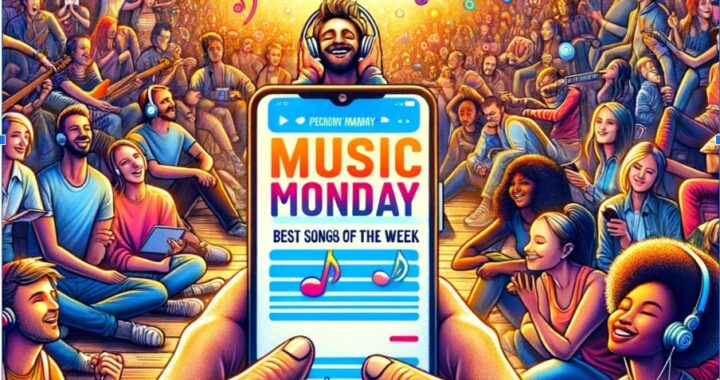Feature: The Rhythm of Success: Music as a Catalyst for Academic Achievement among College Students
4 min read
The power of music as a catalyst for academic achievement is well known. It can be uplifting, create motivation, and release creativity. Its rhythms help to soothe stress and relieve anxiety. Music can help students to concentrate when they have to study. They can also retain more information. It’s important for students to listen to music they enjoy or it won’t have the necessary effect. Here are some of the ways listening to music can boost academic achievement.

Boost concentration
Certain types of music help to relax the brain. Students may experience a great deal of stress. This has a negative effect on their academic performance. They often find it difficult to concentrate and retain information. Their brains are so busy trying to manage stress it can sap their energy. When they listen to music they enjoy, it causes them to relax which lowers their blood pressure and reduces their stress levels. Their concentration levels increase as they become more relaxed. The sounds of nature like rain and the ocean are very relaxing. Many online soundtracks are available that offer this type of calming music.
College students may not have the time or writing skills they need to write essays. The information enhances with informative essay examples as it sheds light on many different topics and helps to relieve their stress. Students can find essays explaining historical events, scientific concepts, and more. These essay examples written by educated, experienced writers contain factual information backed up with research and reliable sources. Students can choose a writer for writing essays to provide them with essay assistance. Using an essay maker will guarantee academic quality.
Increase motivation
Students may find they have a mental block about their studies due to a negative mindset. If they have to keep reading books and studying for long hours, their resolve might flag before they finish. Listening to music they enjoy can alter their state of mind. It can release pleasure hormones from the brain that uplifts their mood.
When they have a more positive mindset, it becomes much easier to study and write assignments. They will feel more motivated to overcome obstacles and face challenges. The emotional release that comes with listening to music can give them a renewed desire to learn.

Stimulate creativity
Creating music requires creativity and listening to it can help to stimulate creativity. If it is instrumental and doesn’t have any lyrics, the rhythms alone have an effect on the brain. Activating theta brainwaves could result in more openness to new ideas and perspectives.
Listening to their favorite tunes could help students to get an idea for a project or a research paper. Research shows that students who perform creative work while listening to classical music are more productive than those who work in silence.
Increase reasoning ability
Students who listen to music may just experience a difference in their ability to reason. The brain is able to absorb and interpret new material more easily. They may find it easy to get answers based on the information they have. They won’t be able to create answers out of thin air in exam times but this may help when they have to write argumentative essays.
Improve retention
In situations where students play music while studying or learning a new concept, music creates a soundtrack that helps them to learn. Listening to music activates areas of the brain associated with memory. It seems to do so in a mental, physical, and emotional way. When information is put to the rhythm of the music it provides a hook for recall.
It’s not surprising that elementary school students often learn the alphabet by using a song. It engages the brain in such a way that it trains it to pay more attention to details.
Listening to classical music appears to help with better performance on memory and processing tasks.
Earn a reward
Some types can be a distraction when students need to hit the books. If they like to listen to music that doesn’t really help with studying, they could reward themselves by listening to it during their study breaks. This could give them more incentive to learn.
Conclusion
Music can be motivating, inspiring and help with relaxation. Students may play classical music while studying for finals or try out a new playlist while learning a new concept. Experimenting with different types of music they like can help them to find the most appropriate type of music for different activities.
Author’s Bio
Karl Bowman works with one aim – to do a level of work that is difficult for others to match. His quest to perform better and be a mighty competitor in the writing field has translated into a high level of success for him. He keeps receiving feedback from students so that he can address the shortcoming and improve more as a sample essay writer.
::: RenownedForSound.com’s Editor and Founder –
Interviewing and reviewing the best in new music and globally recognized artists is his passion.
Over the years he has been lucky enough to review thousands of music releases and concerts and interview artists ranging from top selling superstars like 27-time Grammy Award winner Alison Krauss, Boyz II Men, Roxette, Cyndi Lauper, Lisa Loeb and iconic Eagles front man/songwriter, Glenn Frey through to more recent successes including Newton Faulkner, Janelle Monae and Caro Emerald.
Brendon manages and coordinates the amazing team of writers on RenownedForSound.com who are based in the UK, the U.S and Australia.



